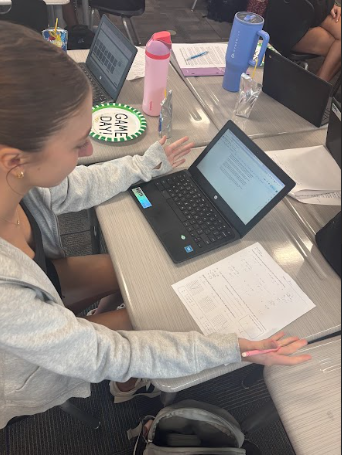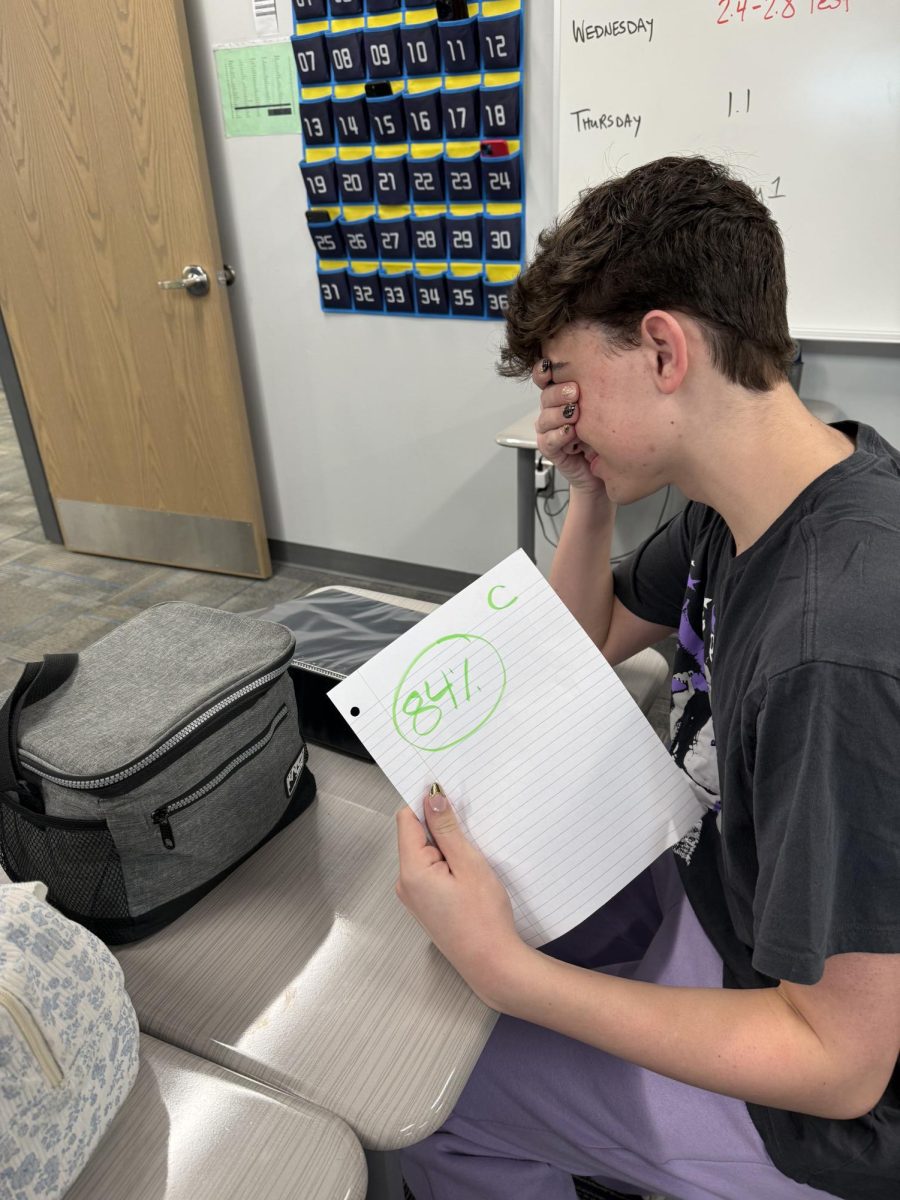TikTok has not stopped talking about the Netflix true-crime documentary, directed by Skye Borgman, called Unknown Number: The High School Catfish. It was released on Aug. 29, 2025, and has captured attention because the person behind the messages isn’t who many would think.
The movie covers a cyber-stalking case that occurred in 2020 in Beal City, Mich., when high schoolers Lauryn Licari and her boyfriend at the time, Owen McKenny, received mysterious text messages from an unknown number.
This number sent hundreds of thousands of text messages to Lauryn and Owen, pretending to be someone they knew. The sender called Lauryn by her nickname, “Lo,” which was exclusively used by family and close friends.
The sender’s main goal was to break up Lauryn and Owen. The messages started with things like, “Hi Lauryn, Owen is breaking up with you.” The sender insisted that McKenny was more interested in them than Lauryn.
Messages like this were ignored by the two at first, but it became worse, eventually causing them to break up. Even after the breakup, the two were tormented with messages that said Owen hates Lauryn and that Owen wants the person behind the messages.
The unknown number sent sexually explicit messages that suggested Owen and the person behind the number were romantically interested in each other.
The high school administration was contacted about the cyberbullying happening, and local law enforcement got involved in the hunt to find the perpetrator. The messages continued for over a year and progressively got worse. The anonymous sender criticized Lauryn’s body and told her to kill herself, saying that if she didn’t, they would.
In the documentary, Lauryn said that these comments put her in a poor mental state. One of the officers, Mike Main, involved in the case, said that he has seen cyberbullying like this before, and some students are only able to sustain so much emotional trauma before they break.
After months of investigating, law enforcement called in the FBI for help, and they discovered that the sender used the app Pinger to disguise their phone as a fake number. The FBI obtained warrants that allowed them to locate the IP address of the phone used by Pinger.
The FBI figured out that Lauryn’s own mom, Kendra Licari, was the one behind the anonymous messages. Their small town was shocked, especially considering that the sender, Kendra Licari, told her own daughter to kill herself.
And this is when the case gets weird. Bodycam footage showed the moment when the officer broke the news to Lauryn; Kendra was in the same room while Lauryn found out this information. Kendra hugged and comforted her daughter, but Lauryn didn’t appear to be shocked and didn’t ask her mom any questions. The officer spoke to Lauryn’s father, Shawn Licari. Shawn appeared surprised, but he seemed more worried about the fact that Kendra had lied to him about having a job for over a year, that she had actually been let go from.
Kendra was arrested in December of 2022 and pleaded guilty to two counts of stalking a minor, so the original charges (communication to commit a crime) would be dropped. She was sentenced to 19 months to five years in prison, but she was released on parole on Aug. 8, 2024, serving only about 16 months.
While Kendra was incarcerated, she was allowed to contact Lauryn mostly through emails. Kendra repeatedly mentioned how much she loved Lauryn and that she couldn’t wait to see her when she is released.
Although there is trust in the legal system, Kendra sent over 100,000 messages in the span of almost two years. And with the weight of those messages, if it were a man, the court would have viewed him as a dangerous predator.
If this were a man who had done the same thing to his daughter and her boyfriend, or son and his girlfriend, many people, including prosecutors, would have taken the sexual content more seriously, ultimately leaving him with additional and/or harsher charges.
“Kendra said a lot of inappropriate and weird stuff,” senior Vanessa Miller said. “For sure, if she were a man, her charges would have been worse.”
It is unusual for the abuser to be allowed to stay in contact with the victim, especially while in custody. No-contact orders are almost automatically issued during sentencing and parole when it comes to stalking.
“Kendra being able to communicate with Lauryn wasn’t a good idea,” junior Kendall Pham said. “She [Kendra] spent so much effort trying to make her daughter’s life miserable; she shouldn’t have had contact with her.”
It’s almost like the court saw this as a family dispute, instead of seeing it objectively: a middle-aged woman with an infatuation for a teenage boy. It may seem like random harassment, but it was an unhealthy obsession. The tactic of harassment, manipulation, flirtation, and control mirrors the way predators emotionally manipulate their victims.
Kendra made fake identities to send thousands of flirty messages to Owen. She attempted to monopolize his emotional state by leaving him confused, scared, and insecure so she could pull Owen closer to her. She gained trust in him by feigning support for Owen and Lauryn’s relationship. But then, she didn’t just bully her own daughter; she was trying to insert herself into Owen’s life.
Because Kendra was the mother and a woman, the case was framed as ‘bizarre bullying’ rather than the grooming that it was.
















